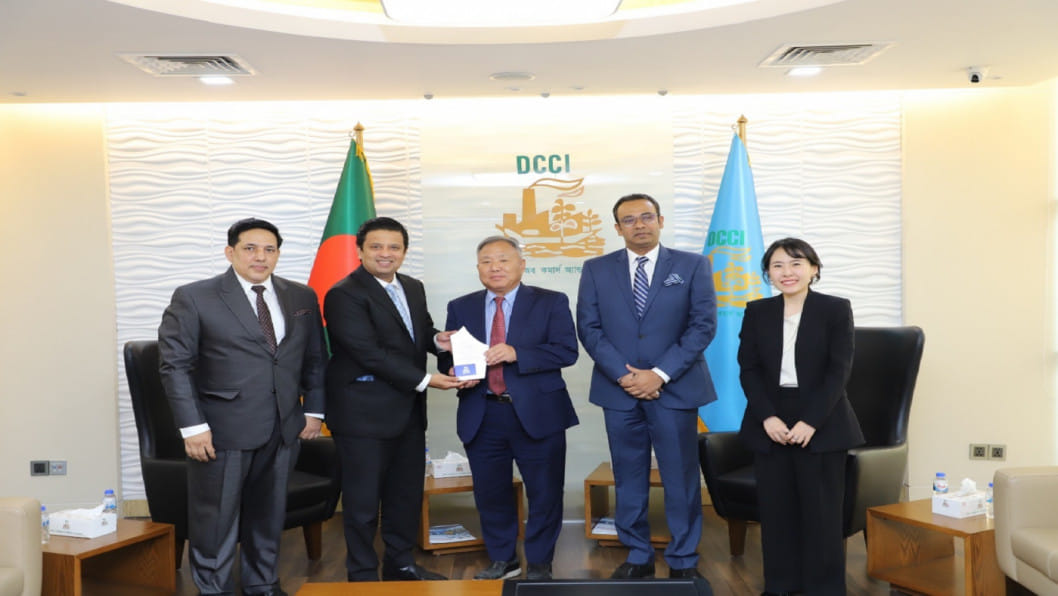Bangladesh has huge potential to attract investment

Bangladesh has significant potential for foreign investment due to its large pool of human resources, strategically advantageous location, and sizable consumer market, said PARK Young Sik, the South Korean ambassador to Bangladesh.
He made the remarks during a courtesy meeting with Taskeen Ahmed, president of the Dhaka Chamber of Commerce & Industry (DCCI), in the capital yesterday, according to a press release.
The South Korean ambassador offered several suggestions to simplify bilateral trade between Bangladesh and South Korea and attract more foreign investment.
PARK Young Sik emphasised the need to simplify visa issuance and renewal processes, speed up customs clearance procedures, improve services provided by the Bangladesh Investment Development Authority, maintain a competitive corporate tax rate, and reduce logistics costs to make the investment climate more appealing.
He also highlighted significant opportunities for foreign investment in sectors such as electronics, mobile phones, automobiles, information technology, and readymade garments (RMG) in Bangladesh.
Taskeen Ahmed, president of the DCCI, noted that bilateral trade between the two countries in the fiscal year 2023–24 reached $1.39 billion, with imports amounting to $902.90 million and exports totalling $491.73 million.
He also underscored that South Korea is Bangladesh's third-largest investor, with investments totalling $1.56 billion.
In addition, sectors such as RMG, shipbuilding, leather and leather products, active pharmaceutical ingredients (APIs), automobiles, electronics, semiconductors, and information technology hold significant potential to attract South Korean foreign direct investment (FDI).
Taskeen urged South Korea to hire more skilled human resources from Bangladesh, highlighting that the country's educated young freelancers have recently excelled in semiconductor industry design.
He expressed hope for increased cooperation from South Korea to help advance Bangladesh's technological capabilities.
The ambassador noted that South Korea has been supporting Bangladesh through various technical training centres aimed at capacity development and creating skilled human resources.
He also pointed out that Bangladesh is set to graduate from least developed country (LDC) status to middle-income country status by 2026.
"If South Korean industries can collaborate or form joint ventures with Bangladeshi companies, it will create opportunities for local entrepreneurs to access high-end technology, which will help Bangladesh face post-LDC challenges," he added.
Rajeev H Chowdhury, senior vice-president of the DCCI, and Md Salim Solaiman, vice-president, along with senior officials from both the Korean Embassy and the DCCI, were also present.

 For all latest news, follow The Daily Star's Google News channel.
For all latest news, follow The Daily Star's Google News channel. 



Comments